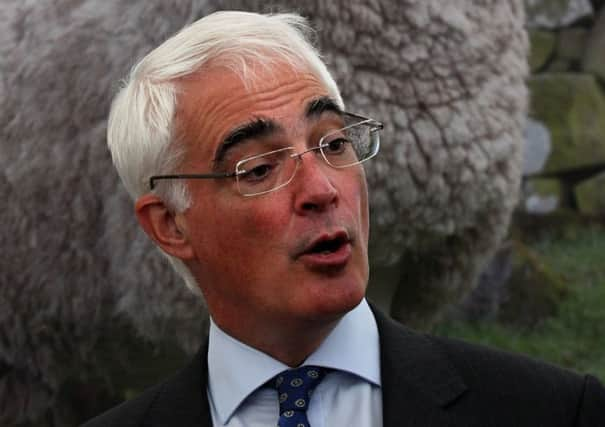Land reform as polarised as independence debate


In the game of top trumps, whether the Scottish trio of Richard Lochhead, Cabinet Secretary for Rural Affairs (complete with his newly added “Food” tag) together with his environment equivalent Paul Wheelhouse and First Minister Alex Salmond pipped the UK’s combo of Defra minister Owen Paterson, farm minister George Eustice and former chancellor Alistair Darling is anyone’s guess – but the point is they all saw fit to attend the show.
However, away from the media scrum, it would be easy to overstate the impact of their visits and – unless you were in the press pack or unlucky enough to get in the way of a minister and entourage in a hurry – for most folk attending the show the weather was probably more of a talking point than the intricacies of the Yes/Better Together campaigns.
Advertisement
Hide AdAdvertisement
Hide AdFor some, being away from the silage or hay in such glorious conditions might have provoked a frisson of guilt, but, as is always the case at such events, many individuals and organisations were at the show to do important business.
One such group was the Land Reform and Tenure team, which launched its interim report at the show. This represented the first part of its review of the agricultural holdings legislation and was probably one of the few genuinely new pieces of work to be unveiled at the show.
And by all accounts the report was a piece of work – involving as it did travelling the length and breadth of the country to hear views and gauge attitudes from the whole of the landlord/tenant sector in both width and depth.
Examples of healthy, thriving relationships where both parties involved were doing well had been encountered on the mammoth sojourn – but, as one member of the panel admitted, some interviews had been “emotional in the extreme” and had sometimes opened up undiscovered wells of despair.
The gaping holes in the Land Reform (Scotland) Act 2003 have been laid bare in recent weeks and months, and were highlighted in the ruling of the Land Court released earlier in the week which had seen the formula imposed in the wake of the Moonzie appeal result in a 78 per cent increase in rent – a figure which could have been higher had the court not decided that it would make the holding unviable.
So, on top of the thoroughness, a “grassroots up” approach plus top level legal advice is the approach being taken this time around.
The interim report could have been criticised for raising more questions than answers, with one party pointing out that the question mark was by far the most frequently used piece of punctuation.
However, the panel was unapologetic about this fact, stating that phase one of their remit was to identify the questions which needed to be answered if the underlying problems were to be addressed in a meaningful way. Stage two will be for tracking down the solutions.
Advertisement
Hide AdAdvertisement
Hide AdBut the review was justified in the revelation that Scotland now has the lowest area of tenanted land in any European country, with concerns that shorter leases were replacing longer-term letting arrangements.
This latter fact meant difficulties were often encountered in obtaining finance and getting access to farm support payments, as well as stifling new entrants and affecting the willingness of either party to become involved in projects requiring capital expenditure.
So, the next six months will concentrate on finding answers to these problems.
And therein lies a problem for at least part of the sector. While welcoming much of the report and its direction of travel, some fears have been expressed that with a further six months to run, and then a slot to be found in the parliamentary timetable for any legislative changes, no short-term fix is likely.
This has raised fears that, with the current system obviously in need of rectification, some agents could “make hay” with rental levels in the intervening period.
And, with the increasingly antagonistic extremes of this debate becoming as polarised as the political one over independence, it is surely time for those involved to put down their own spinning activities and come together to negotiate a solution.